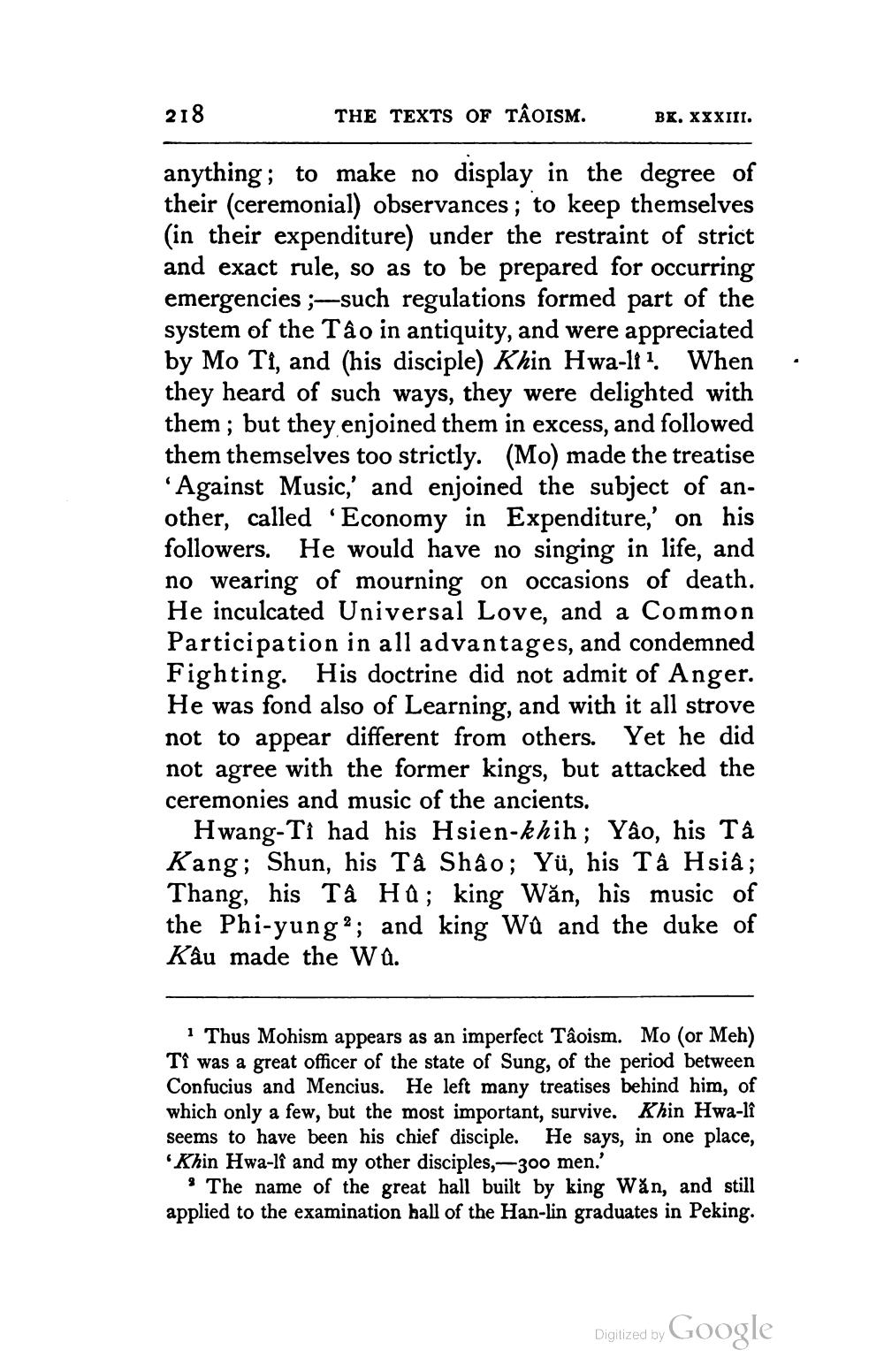________________
218
THE TEXTS OF TÂOISM.
BK. XXXIII.
anything; to make no display in the degree of their (ceremonial) observances; to keep themselves
in their expenditure) under the restraint of strict and exact rule, so as to be prepared for occurring emergencies ;-such regulations formed part of the system of the Tâo in antiquity, and were appreciated by Mo Ti, and (his disciple) Khin Hwa-111 When they heard of such ways, they were delighted with them; but they enjoined them in excess, and followed them themselves too strictly. (Mo) made the treatise 'Against Music,' and enjoined the subject of another, called 'Economy in Expenditure,' on his followers. He would have no singing in life, and no wearing of mourning on occasions of death. He inculcated Universal Love, and a Common Participation in all advantages, and condemned Fighting. His doctrine did not admit of Anger. He was fond also of Learning, and with it all strove not to appear different from others. Yet he did not agree with the former kings, but attacked the ceremonies and music of the ancients.
Hwang-Ti had his Hsien-khih; Yao, his Tâ Kang; Shun, his Ta Shâo; Yü, his Tà Hsiâ; Thang, his Tã Hu; king Wăn, his music of the Phi-yung2; and king Wa and the duke of Kâu made the Wa.
1 Thus Mohism appears as an imperfect Taoism. Mo (or Meh) Tî was a great officer of the state of Sung, of the period between Confucius and Mencius. He left many treatises behind him, of which only a few, but the most important, survive. Khin Hwa-li seems to have been his chief disciple. He says, in one place, Khin Hwa-li and my other disciples,-300 men.'
. The name of the great hall built by king Wăn, and still applied to the examination hall of the Han-lin graduates in Peking.
Digitized by Google




